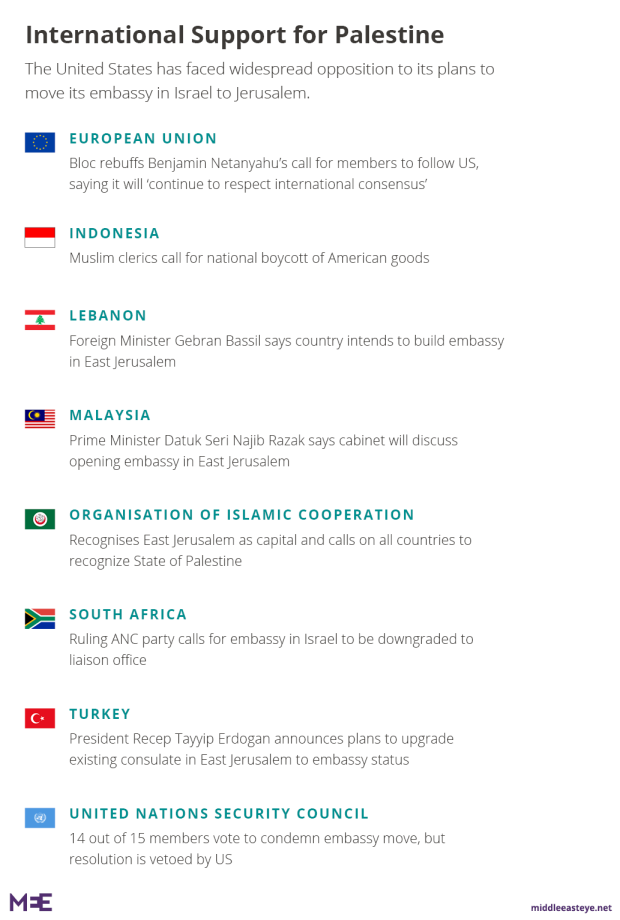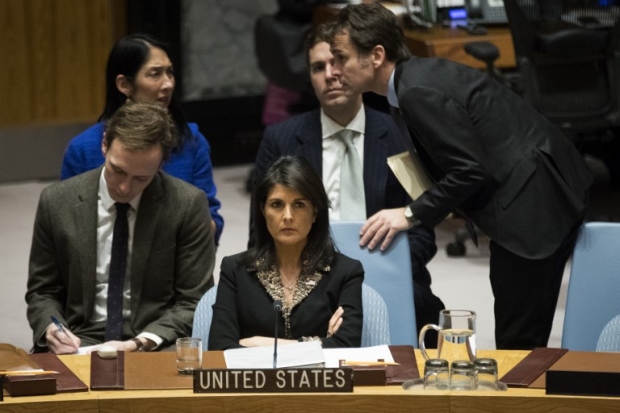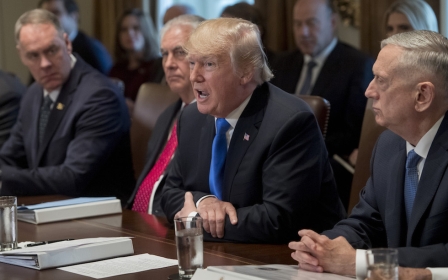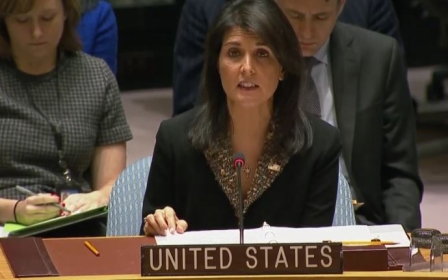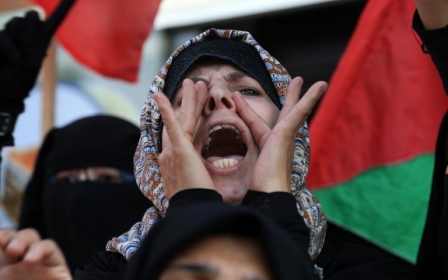Erdogan urges world 'not to be bought' by Trump's dollars in Jerusalem vote
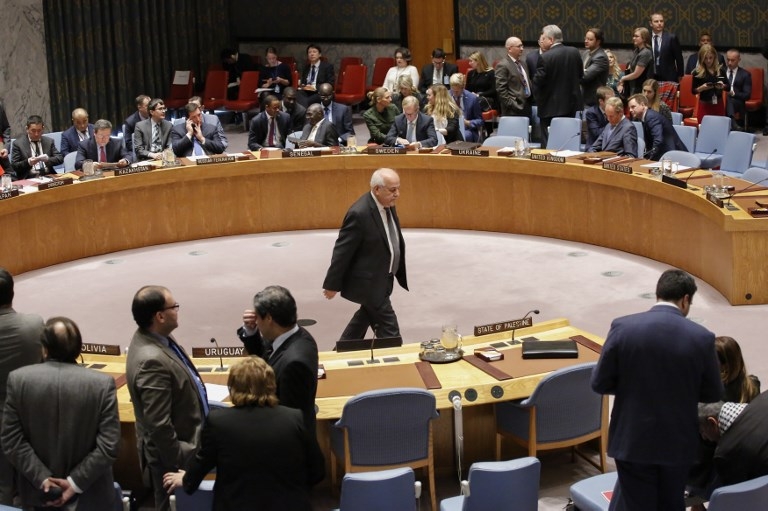
Turkish President Recep Tayyip Erdogan slammed US President Donald Trump on Thursday, hours before the UN General Assembly is expected to reject US recognition of Jerusalem as Israel's capital.
"Mr Trump, you cannot buy Turkey's democratic will with your dollars," Erdogan said after Trump threatened to cut aid to countries that support a draft UN resolution calling for the US to withdraw its decision to recognise Jerusalem as Israel's capital.
"I hope and expect the United States won't get the result it expects from there (the United Nations) and the world will give a very good lesson to the United States," Erdogan said in a speech in Ankara.
UN member states have begun debating a motion rejecting US recognition of Jerusalem as Israel's capital at an emergency session about the draft resolution that the US vetoed at the Security Council on Monday after all other 14 council members voted in favour of the measure.
On the eve of the vote, Trump suggested there could be reprisals for countries that support the motion, put forward by Yemen and Turkey on behalf of Arab and Muslim countries.
Well, we're watching those votes. Let them vote against us. We'll save a lot. We don't care
- Donald Trump
"They take hundreds of millions of dollars and even billions of dollars and then they vote against us," Trump said at the White House.
"Well, we're watching those votes. Let them vote against us. We'll save a lot. We don't care."
The draft resolution mirrors the vetoed measure, reaffirming that any decision on the status of Jerusalem has no legal effect and must be rescinded.
It does not mention Trump's decision but expresses "deep regret at recent decisions concerning the status of Jerusalem".Diplomats expect strong support for the resolution, which is non-binding, despite the US pressure to either abstain, vote against it or simply not turn up for the vote.
On Tuesday, US Ambassador Nikki Haley sent an email to fellow UN envoys to put them on notice that "the president will be watching this vote carefully and has requested I report back on those countries who voted against us."
"We will take note of each and every vote on this issue," she wrote in the message seen by AFP.
On Twitter, Haley posted that "the US will be taking names" when the ambassadors of the 193-nation assembly cast their vote on Thursday.
"Nikki, that was the right message," Trump said.
A council diplomat said Canada, Hungary and the Czech Republic might bow to US pressure, but the motion is all but certain to be approved.
No country has veto powers in the General Assembly, contrary to the council where the United States, along with Britain, China, France and Russia, can block any resolution.
'Threats' from Washington
Trump's 6 December decision to recognise Jerusalem broke with international consensus, triggering protests across the Muslim world and drawing strong condemnation.
Key US allies Britain, France, Italy, Japan and Ukraine were among the 14 countries in the 15-member council that voted in favour of the measure and were expected to do the same on Thursday at the assembly.
Palestinian Foreign Minister Riyad al-Malki accused Washington of "threatening" member-states, saying it was "another mistake" following the US veto at the Security Council.
Malki said the UN session would show "how many countries will opt to vote with their conscience".
While resolutions by the General Assembly are non-binding, a strong vote in support of the resolution would carry political weight.
Turkey and Yemen, representing the Arab group of countries and the Organisation of Islamic Cooperation (OIC), presented the measure reaffirming that Jerusalem is an "issue that must be resolved through negotiations."
Turkish President Recep Tayyip Erdogan has sought to lead Islamic condemnation of Trump's Jerusalem plan, calling a summit of the leaders of Muslim nations last week in Istanbul, who urged the world to recognise East Jerusalem as the Palestinian capital.
East Jerusalem was annexed by Israel after the 1967 war, in a move never recognised by the international community. Israel sees all of Jerusalem as its undivided capital.
Turkish Foreign Minister Mevlut Cavusoglu said his country expected "strong support" for the Palestinians, adding: "Everyone with a conscience ... is against this decision that usurped Palestine's rights."
Several UN resolutions call on Israel to withdraw from territory seized during the 1967 war and the draft resolution contains the same language as past motions adopted by the assembly.
New MEE newsletter: Jerusalem Dispatch
Sign up to get the latest insights and analysis on Israel-Palestine, alongside Turkey Unpacked and other MEE newsletters
Middle East Eye delivers independent and unrivalled coverage and analysis of the Middle East, North Africa and beyond. To learn more about republishing this content and the associated fees, please fill out this form. More about MEE can be found here.


